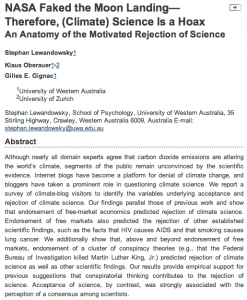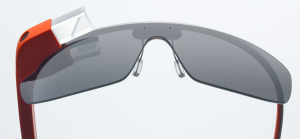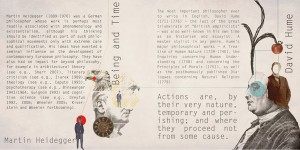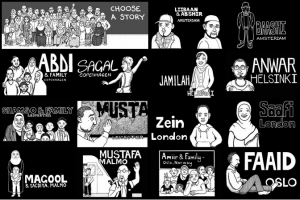Following up on my previous post on the Frontiers of Psychology decision to retract a published paper that investigated conspiratorial ideation by analyzing blog posts, the most recent statement by the Frontiers group re-writes its reasons for the retraction:
Frontiers came to the conclusion that it could not continue to carry the paper, which does not sufficiently protect the rights of the studied subjects. Specifically, the article categorizes the behaviour of identifiable individuals within the context of psychopathological characteristics.
And, they continue: “we also must uphold the rights and privacy of the subjects included in a study or paper.”
A troubling feature of this revised retraction is that is contradicts the first, which asserts there were no ethical issues with the research, but now there are. This does not speak well for the journal, its editors and the umbrella Frontiers group. (See here for commentary about the media coverage of the journal.)
 But the heart of the matter is whether the identity of bloggers who made comments openly and publicly should be protected? The short answer is, no. The key here is that bloggers’ personal comments are public and so once made, bloggers give up their rights to privacy. And indeed, in the discourse one presumes these bloggers do not wish to be anonymous, but to own their viewpoints. Blog comments are not responses to a researcher’s queries offered in the frame of most social science research, which does offer protection of privacy through confidentiality and anonymity. The blog comments are therefore a legitimate source of found data that support a range of analyses, including in this case what they might reveal about conspiratorial ideation.
But the heart of the matter is whether the identity of bloggers who made comments openly and publicly should be protected? The short answer is, no. The key here is that bloggers’ personal comments are public and so once made, bloggers give up their rights to privacy. And indeed, in the discourse one presumes these bloggers do not wish to be anonymous, but to own their viewpoints. Blog comments are not responses to a researcher’s queries offered in the frame of most social science research, which does offer protection of privacy through confidentiality and anonymity. The blog comments are therefore a legitimate source of found data that support a range of analyses, including in this case what they might reveal about conspiratorial ideation.
I would note though that this matter is not straightforward and harvesting of social media (Facebook, Twitter, blogs) is still new territory for social scientists. There are essentially two positions:
- what is archived on the internet is public, and no consent is required from those who created the data
- what is archived is public, but the content creators imagined they were writing in private and so consent is required
(See here, for one discussion of both sides, here for a discussion of the blogosphere as a source of data, here for a commentary on qualitative research blogs. And here for a legal opinion on the matter.)
 Follow
Follow








